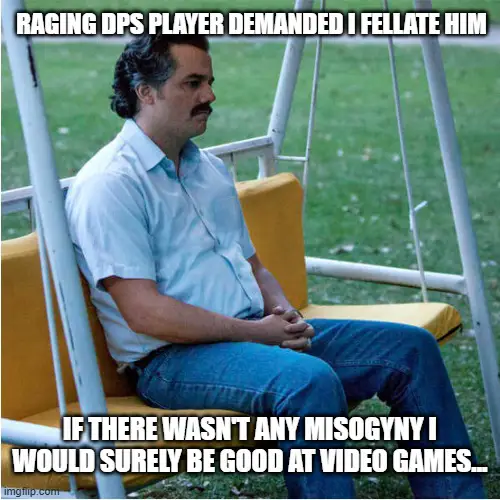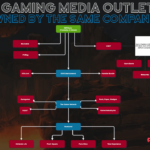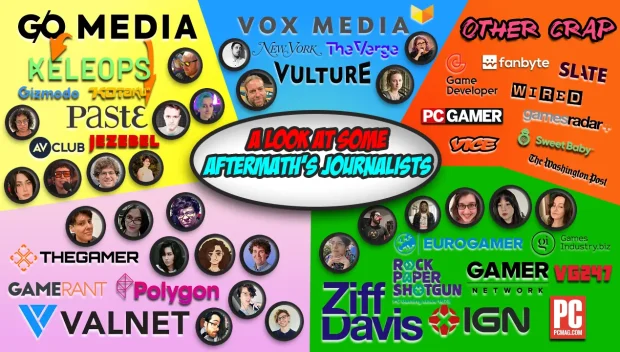
The Cope Olympics: Why Gaming Journos Can’t Admit They’re Mid
DramaGaming FailsGaming News 24 8 Ayefkay August 22, 2025

When I came across Alyssa Mercante’s recent article on Marvel Rivals at GameSpot, I honestly didn’t know what I would be stepping into.
I wasn’t prepared to take the kamehama to the face in the form of roughly 1,100 words of pure and unadulterated cope.
Her article, “Marvel Rivals Made Me Quit Competitive Gaming”, isn’t really about Marvel Rivals at all. It’s about how one failed ex-Kotaku editor decided that losses in a free-to-play competitive game weren’t her fault, but the system’s.
This is the kind of mental gymnastics that has become invasive in modern gaming journalism. Rather than looking in the mirror and admitting, “hey, maybe I’m just mid,” writers like Alyssa weave elaborate narratives about toxic communities, unfair matchmaking, or oppressive design choices.
But really, this is just the Dunning-Kruger Effect and self-serving bias dressed up as content.
Dunning-Kruger and the Self-Serving Bias Combo Meal
What is the Dunning-Kruger effect, you say? I’m glad you asked!
The Dunning-Kruger Effect is a psychological phenomenon where people with low skill overestimate their abilities. Meanwhile, self-serving bias means taking credit for wins while blaming losses on external forces.
Together, they’re basically the gamer’s two-for-one Happy Meal of denial. And you can see both in Alyssa’s article.
Maybe the problem isn’t me…maybe it’s the game.
-Alyssa Mercante
She starts by talking about her enjoyment of early success in Marvel Rivals, as though those victories somehow proved her innate talent. But the moment she starts losing, suddenly the problem isn’t her skill ceiling. Oh no, it’s the matchmaking system. Or the community. Or the invisible hand of toxic competitiveness holding her back.
This isn’t new, of course. We’ve seen it before. When South of Midnight came out earlier this year, John Walker wrote laughable pieces begging for a “skippable boss fight utopia” because they couldn’t handle the difficulty curve of games.
Take a seat, John.
When Cuphead dropped, one viral video showed Dean Takahashi of GameBeat fumbling through the tutorial level for a whopping 26 minutes, sparking debate over whether reviewers should even be required to have basic gaming competence.
And every few months, another “competitive gaming is too toxic” op-ed makes the rounds, always conveniently forgetting that competitive games, by design, involve winning and losing.
From Critics to Karens
Gaming journalism used to be about critique: breaking down mechanics, offering genuine analysis, maybe giving players insight into a game’s design. These days, much of it reads more like therapy blogs.
Instead of explaining how Marvel Rivals balances its hero roster or whether it innovates on the hero shooter formula, we get personal essays about why a single washed out player couldn’t cut it and why that must mean the game is flawed.
It’s like a retirement home for burnt out players.

Image: Alyssa Would Be Good At Gaming If There Wasn’t Any Misogyny | imgflip
Journalists who were once passable at games now use their platforms to complain about their own decline, spinning it as a universal indictment of the industry. The vibe is less “analyst breaking down patch notes” and more “Karen demanding to see the Manager of Gaming because her rank isn’t climbing.”
The bigger problem is that this self-centered, emotional framing actually shapes the narrative around gaming. Readers who don’t know better see headlines about toxicity or unfair systems and assume the games themselves are broken.
In reality, they’re just reading about one person’s bruised ego.
Why the Copium Matters
On the surface, Alyssa quitting Marvel Rivals isn’t earth shattering in the slightest – no one would honestly expect anything different from the ex-games journalist at this point.
But the larger trend matters. If gaming journalists keep selling the story that competitive gaming is toxic or unfair, not because of real systemic problems but because they personally couldn’t handle losing, it pressures developers to flatten the skill gap.
We’ve already seen this play out before.
Blizzard’s Overwatch became increasingly casual-friendly over time, compressing the skill curve and making the competitive experience shallower in an attempt to appeal to everyone . The result was a gutted competitive scene and a player base that lost faith in the game.
If gaming journalism keeps rewarding cope articles with clicks, we risk more games being nudged toward the lowest common denominator. Instead of depth, mastery, and competition, we get watered-down experiences designed not to intimidate the other failed Alyssas of the world.
The Real Boss Fight in Gaming
At the end of the day, the real boss fight isn’t Marvel Rivals’ matchmaking or its community. It isn’t toxicity, balance issues, or mythical systems designed to keep players down.
It’s the mirror.
Alyssa didn’t quit competitive gaming because the system is broken. She quit because she hit her itty bitty skill ceiling. And rather than admitting that, she turned it into a sob story about how the big bad game made her leave. This is the Cope Olympics at its finest: turning personal shortcomings into content and expecting the trained seals to clap for it.
Competitive gaming has always been about skill, adaptation, and resilience. Some people thrive on that challenge. Others bounce off. That’s fine. But when gaming journalists mask their inability to compete as some grand cultural critique, they don’t just make themselves look bad – they drag the whole conversation down with them.
Maybe the lesson here is simple: not every loss is a conspiracy, not every bad match is proof of toxicity, and not every game is designed to keep you from climbing.
Sometimes you’re just not as good as you thought you were.
And that’s okay. Just don’t turn it into another 1,100 words of cope.
This was a commentary article based on publicly available information and personal opinion. Readers are encouraged to form their own conclusions based on the sources cited.
All images, logos, and video clips used in this article are the property of their respective owners. This content is used for the purposes of commentary, criticism, and news reporting under the guidelines of Fair Use (17 U.S.C. § 107). No copyright infringement is intended. If you are the copyright holder and believe your content has been used improperly, please contact us directly.
Want More?
Check These Out Next!
About Report AFK
A place for gamers, by gamers, untarnished by corporate gaming media and their nonstop attempts to elevate bad games while denouncing any developers brave enough to stand up to them.
Site Links
Copyright 2026 ReportAFK.com











HAHAHA
August 22, 2025
ROASTED
Ayefkay
August 22, 2025
Hey Hahaha, thanks for stopping by and glad you liked it lol. I’m trying to think of what show had someone saying “Boom, roasted” on it and it’s going to drive me crazy!
Riley S
August 22, 2025
not a fan of Marvels Rivals but there is no good game journalism anymore
Ayefkay
August 22, 2025
Except for the website you’re commenting on…right?
Lol ok, I don’t really consider myself as a gaming journo myself – not only because I generally hate 90% of them, but most of the stuff I write about is just opinion or guides.
Maybe then? Meh. Thanks for stopping by though Riley!
OLLIE
August 23, 2025
Mercante is the lolcow of uranilists
Ayefkay
August 25, 2025
Oh, hey again Ollie. Yeah, her power level is over 9,000 on my cringe radar.
KC
September 6, 2025
1. I don’t agree with bashing on other people generally
2. She kind of started it
3. I’m torn
At least you gave some good background information because I’ve heard alot worse about her from other people on twitter. Staying neutral is basically impossible at this point and everyone just injects politics into everything for some reason (even this website obviously) so whatever.
Ayefkay
September 7, 2025
Hey KC, yeah I don’t pretend to be impartial. Honestly, one of the main reasons I even made this website is because I noticed that basically every single gaming website was an ideologically captured, corporate-owned propaganda machine and I wanted to make ReportAFK to have a place to include messaging that I feel is a little less insane and overly sanitized. But I generally don’t like the journalists (or ex-journalists) that try to keep the machine running on virtue signaling and cry bullying.
Regardless, I appreciate your honesty and thanks for stopping by!